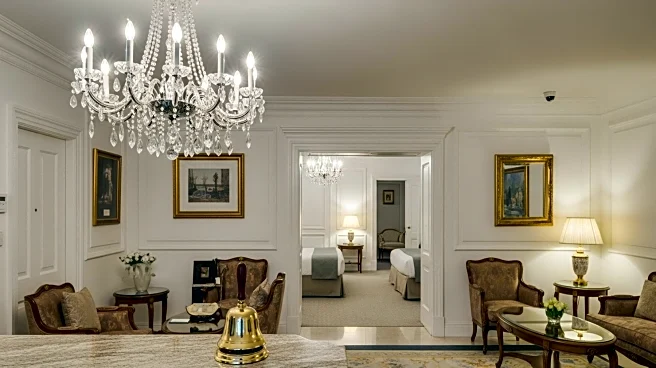What's Happening?
The Portuguese hotel industry is experiencing a slight decline in revenue per available room (RevPAR) despite maintaining stable occupancy rates. In July 2025, the occupancy rate in Portugal increased by 0.8 points, yet the average daily rates (ADR) decreased by 2%, leading to a 1% drop in RevPAR. This trend is part of a broader pattern observed across European hotels, where traditional leisure destinations are seeing changes in visitor numbers and consumption patterns. The shift towards alternative accommodations, such as seasonal rentals, is contributing to these changes. While some markets like Greece and Spain have managed to increase their revenues through pricing strategies, Portugal's hotel sector is facing challenges in maintaining its revenue growth.
Why It's Important?
The performance of the Portuguese hotel industry is significant as it reflects broader trends in the European hospitality sector. The decline in RevPAR, despite stable occupancy, suggests that pricing strategies may need to be adjusted to maintain profitability. This situation highlights the competitive pressures faced by traditional hotel accommodations from alternative lodging options. The ability of the Portuguese market to adapt to these changes will be crucial for sustaining its tourism sector, which is a vital component of the country's economy. The industry's response could influence employment, investment, and overall economic health in Portugal.
What's Next?
The Portuguese hotel industry may need to explore new strategies to counteract the decline in RevPAR. This could involve enhancing value propositions, diversifying offerings, or leveraging technology to improve customer experiences. Stakeholders, including hotel operators and tourism authorities, might consider collaborative efforts to promote Portugal as a destination and attract a broader range of tourists. Monitoring the performance of alternative accommodations and adjusting marketing strategies accordingly could also be essential steps in addressing the current challenges.
Beyond the Headlines
The shift towards alternative accommodations raises questions about the long-term sustainability of traditional hotel models. The industry may need to consider ethical and environmental implications of tourism growth and explore sustainable practices. Additionally, the role of digital platforms in shaping consumer preferences and the potential regulatory responses to these changes could have lasting impacts on the hospitality sector.










